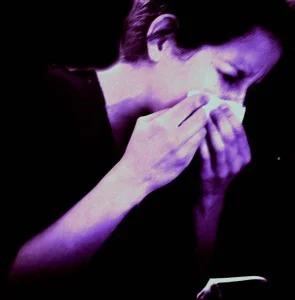In a recent issue of Psychological Science, researchers report on a new finding that our immune systems may be dictating our behavior. When we notice that someone else is sick or has a rash, we instinctively try and avoid that person to keep ourselves healthy. This is called the “behavioral immune system” – we preform behaviors to avoid getting sick.

Can it also happen the other way around? Once our immune systems are activated, can they change our behavior? There is a significant body of evidence suggesting that indeed this can happen. Sickness behavior – when you feel tired, anti-social, and kind of blue when you’re sick – is potentially caused by pro-inflammatory cytokines being released from your immune cells. It’s a very advantageous part of the immune system’s process of getting you healthy because the sickness behavior causes you to rest (giving your immune system the needed energy to fight the invader) and avoid other people (so you don’t spread the illness). So this is one case where the immune system talks to the brain to change behavior.
Saul Miller of the University of Kentucky and Jon K. Maner of Florida State University report on a new study with similar conclusions. Through two experimental studies where undergraduates come into a lab and respond to pictures of disfigured and normal faces as quickly as they could, the researchers concluded that the subjects who who had more recently been sick paid more attention (measured by how long they looked at the face) to the disfigured faces than to the normal faces. Subjects who had not been sick recently did not respond at different speeds to the disfigured versus normal faces. Why would this be the case? How does this help us in an evolutionary sense? Miller suggests that for people who have just been sick, they are more likely to pay attention to and display avoidance of disfigured faces because their brains are reading the disfiguration as a rash or a sneeze. Read the full press release here and an article about this from Discovery News here.